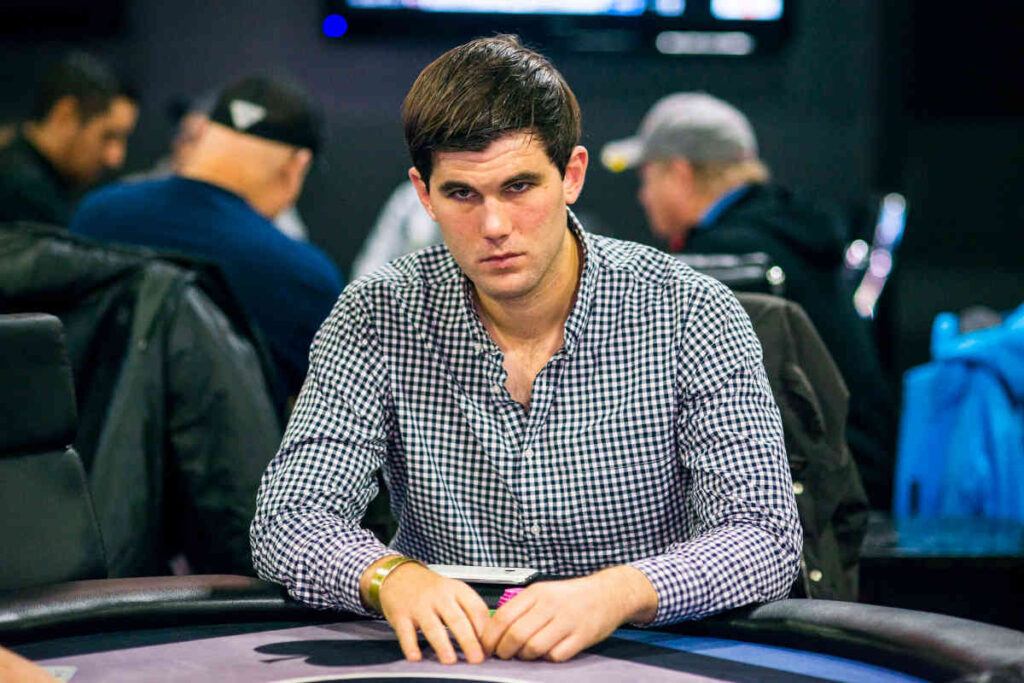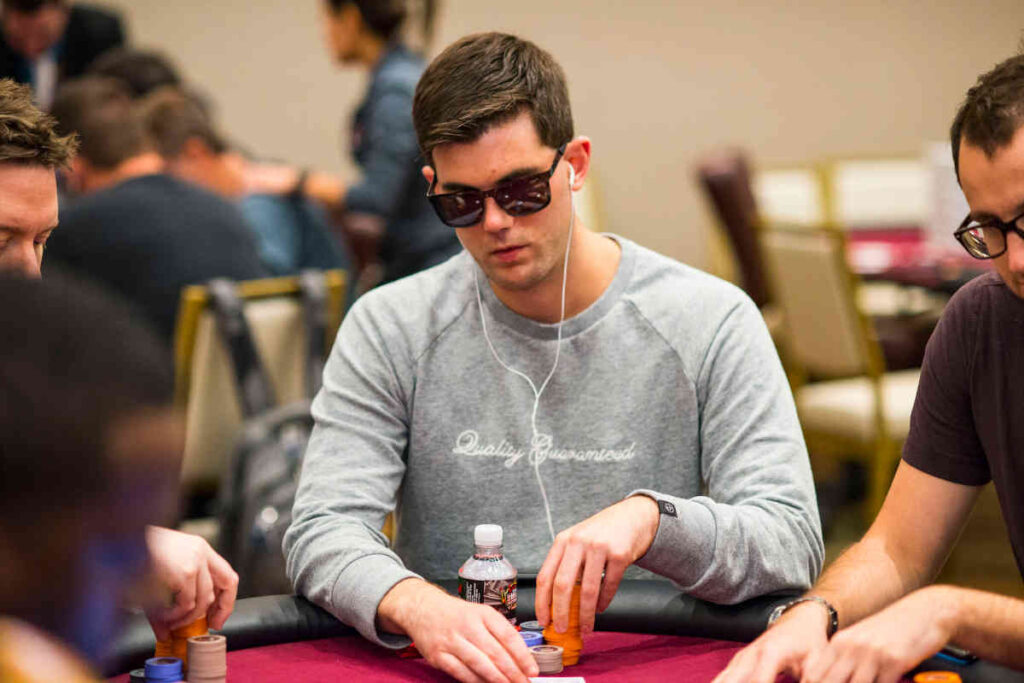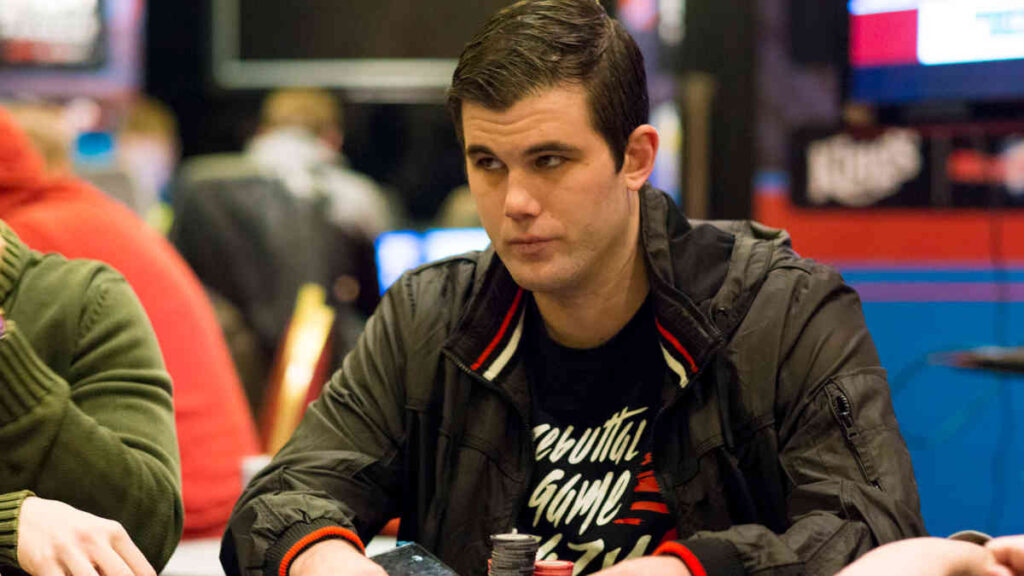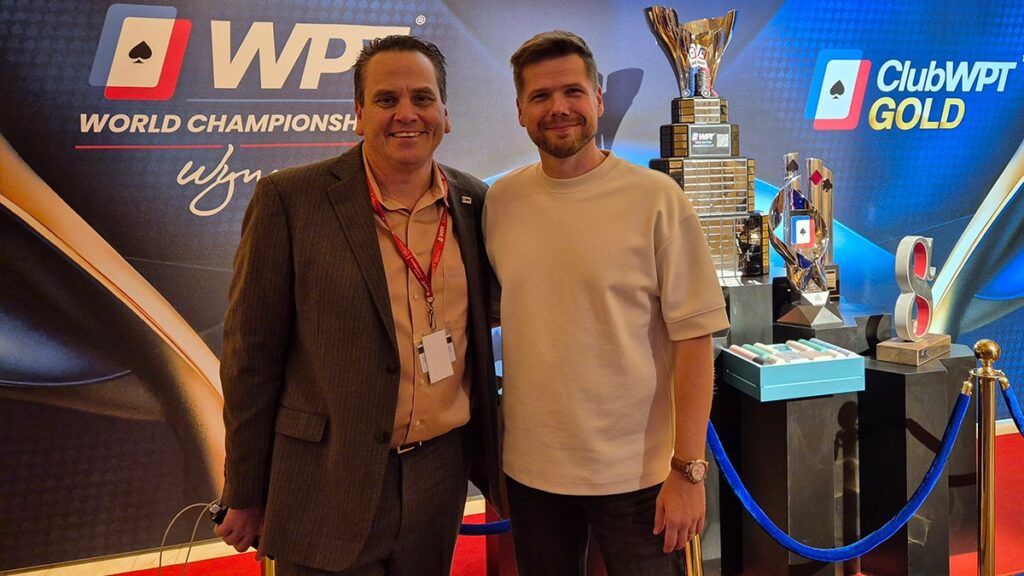Images courtesy of WPT.com
Precision. Discipline. Relentless analysis. Alexander Fitzgerald approaches poker like a scientist in a lab—measuring every move, testing every theory, and always hunting for an edge.
In this edition of Inside the Poker Circles, drawn from Between the Blinds: Interviewing Poker Professionals by Sara O’Connor (coming this fall), we dive into the mind of one of the game’s most respected strategic thinkers.
With a sharp analytical style and a direct, data-driven coaching approach, Fitzgerald has helped countless players move from confusion to clarity.
Whether he’s dissecting a poker hand, writing his next book, or working one-on-one with students, he brings to the game of poker a no-nonsense mentality and a deep commitment to getting better.
In this interview, he opens up about the experiences that have shaped his game, the principles behind his process, and what it really takes to succeed in poker’s modern era. This is Inside the Poker Circles.
Do you remember your first time playing? If so, what was it like?
The first time I played poker was with my father when I was ten. We played for quarters. He’s a commercial fisherman. When they had downtime up in Alaska, all of the men played cards.
They’re tough to beat. Early on, my dad didn’t take it easy on me. He knew I wouldn’t learn that way. I’m grateful for that education.
What levels have you played, and which is your favorite and why?
I’ve played $25/$50, but I didn’t win at that level. I actually did really well at $1/$2 and $2/$4 online, so those were always my favorite limits. I could forget about the swings at those limits and just focus on the form.
Where is your favorite place to play and why?
My favorite place to play is online, truthfully. I can be at home with my music and standing desk. I get to sleep in my own bed at night and play a ton of hands.
When it comes to playing live, my favorite place to play is Las Vegas. There’s so much action and so much of it is still soft. It’s amazing to be able to play at any time day or night.
What’s one thing you wish people knew about playing Texas Hold’em tournaments?
What people should know about Texas Hold’em tournaments is what they’re aiming for. If the payout structure is flat and pays out a large percentage of the field, you’re going to want to play more solidly.

If the payout structure is top-heavy or the minimum cashes don’t mean anything to you, and you play for fun because you have another job, then you should enjoy yourself, gamble up, and go for the win.
Have you noticed any common mistakes or misconceptions that new players have about poker?
The most common misconception new players have about poker is that great players are constantly making huge calls or huge bluffs.
If you’re at a soft table and in control, you don’t have to do anything extraordinary. If big plays come up, that’s great, but for the most part, you’re value betting recreational players.
When you go on a losing period, do you begin to question if you still have an edge? What do you do to re-prepare yourself for next time?
I used to question myself constantly as to whether I had an edge or not when I was losing. Now, that doesn’t come up. If you play and study long enough, you will see people make the same mistakes again and again.
People give up on the felt constantly. You just need to be there to collect when they make their mistakes. If you are patient and don’t get entitled, the winning sessions will come.
What advice would you give to players about table etiquette and interacting with dealers and players?
You want to be polite in your interactions at the poker table. If you piss someone off, they become less predictable. A comfortable poker player is a predictable player. You can use the hands they play versus other people as information.
If you intentionally piss someone off, then they might start trying different bluffs against you that they normally don’t do. That can be difficult to predict. Oh, and always be kind to the dealers. They have to corral poker players all day. That can’t be easy.
Do you have any pre- or post-game rituals you practice?
I usually lift weights and stretch before I play. I at least try to do it the day before, if I can’t work out on the day of playing. Exercise drains nervous energy.
My post-game ritual is to listen to something on Audible or a podcast. I try not to listen to anything too taxing. Something about closing my eyes and shutting off the world helps me rest. It’s easier to play tournaments when you can cool down quickly.
What skills do you believe are crucial for a poker player to be successful, based on your observations and/or experiences?
To be successful at the poker table, you have to be patient. You have to be willing to pay attention. Everything else builds off those two qualities.
What was it like making final tables in the World Poker Tour (WPT) and EPT (European Poker Tour)?
It was so exciting to make those WPT and EPT final tables. You grow up watching people play on the grand stage, and then you finally get to be there. It’s a surreal feeling.

It feels so good to know you worked so hard and you were able to compete with the big boys. I just wish I got to spend some more time at those final tables! I’m really looking forward to making another one.
What is the largest or the most memorable win you’ve accomplished, and how did you celebrate it?
I won a $250,000 Guaranteed during the height of the pandemic. I was stuck in a tiny apartment in a crowded metropolis. I was actually sick that night, but it turned out to be a problem with my teeth. I felt like I beat the odds when I took that one down.
It sounds silly, but I celebrated winning that $250,000 Guaranteed by going to Subway at 4:00 AM or whatever the hell time it was, and ordering a feast. That was the only thing open on the block.
I’m normally not a huge fan of Subway, but I was starving at that moment, and that meal tasted amazing after everything I’d fought through that night.
You’ve published several books and created several poker courses, can you tell me about some of your favorites?
Being a poker educator is great! It helps me improve my game because my students ask such incredibly good questions. It keeps me sharp. It’s also a great way to diversify in such a difficult profession.
I am grateful I got to write every single one of my books. I genuinely love drinking coffee, listening to metal music, and writing. A new one about “How To Beat Players Who Never Fold” was fun to write.
Everybody tells me they have a hard time beating tables full of recreational players who never fold, so it was fun to create tools to help them. It was a lot of work, but it all feels worth it now.
It’s been a privilege to make every one of my poker courses. Making poker courses is a great way to organize your thoughts and test your theories.
My favorite one is probably “Poker Without Fear”. My collaborator, Steve Blay, and I put so much work into that training package. We were able to help a ton of people at the poker table. Once they got the fear out of their eyes, they started playing WAY better.
If you want to get a few of my training packages for free sign up for my daily newsletter at www.pokerheadrush.com
What’s your least favorite thing about playing the game and what you like the most?
My least favorite thing about playing the game is not being able to play enough, honestly. I wish I could play more. I still love playing. But it’s hard to get as many hands in as I’d like.
My favorite thing about playing the game is how it organizes all my thoughts and focuses me. I feel so present when I play. I feel so engaged. I can be scattered normally, so it’s great to feel that kind of focus.
Where do you see yourself in five to ten years and what’s your favorite thing about playing the game?
In the next five or ten years, I will still be playing poker. This has been my career since I was a teenager. This is the one trade I know. I’m not going anywhere. I might play less if I get the opportunity to try new things, but I’ll always play poker. I love the game. I love playing.
My favorite thing about playing the game is how it prompts me to focus and serves to organize all of my thoughts. I feel so present when I play. I feel so engaged. I can be scattered normally, so it’s great to feel that kind of focus.


